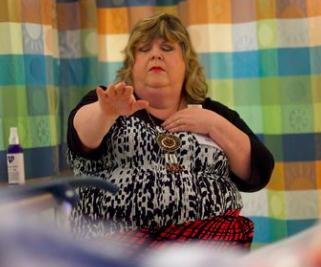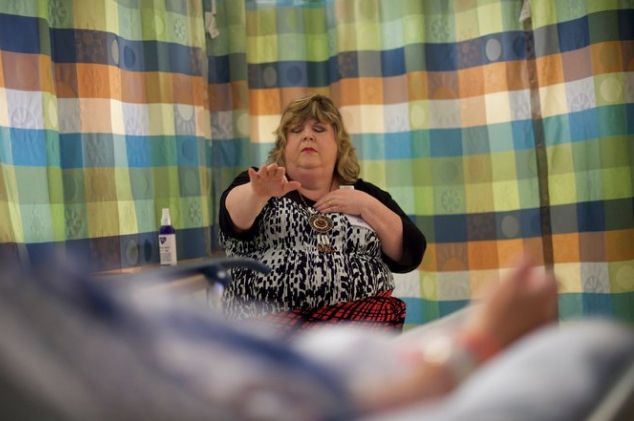
By any measure, the opioid addiction epidemic was (and still is) a huge mess. For years, doctors and dentists were too lax in prescribing narcotics, paper prescriptions permitted drug seekers to "doctor shop," and quite a few people got addicted. Many of them died. Clearly, something had to be done.
"Done" turned very quickly into "overdone." It is now increasingly difficult to get strong pain medications when you really need them—even for short-term use. Some oral surgeons are even considering giving their patients Advil (ibuprofen) rather than Vicodin following a surgical procedure. This is especially barbaric since oral surgery is notoriously painful. Perhaps an oral surgeon or two with this mindset should get a bone graft or have an impacted wisdom tooth removed and be sent home with Advil before they start refusing to write even a 3-5 day prescription for Vicodin.
It would seem that the term "happy medium" does not exist in this new Puritanical world of pain. This is a real shame because the overreaction that we are now experiencing will be at the expense of ordinary people who need a little extra help once in a while. They will suffer needlessly because we are all being treated like addicts (1).
Furthermore, this reflexive overreaction has created a unique and disturbing conflict of interest. Physicians must now decide whether to properly care for their patients or instead, protect themselves from being placed on a DEA list as “pill pushers.” This automatically creates a radical distortion of the physician-patient relationship.
It is patients with legitimate needs who will inevitably suffer. And what could be a better example of this than anyone unfortunate enough to end up in the emergency room at St. Joseph’s Regional Medical Center in Patterson, NJ? The hospital has been described as "on the leading edge" of the effort to control narcotic addiction. Here is one of their ideas (2) of how to control pain:

Photo: New York Times
You have just witnessed Lauren Khalifeh, a nurse, and St. Joseph’s holistic coordinator practicing pranic healing. The definition is even worse than you might think:
Pranic Healing (bioplasmic healing, radiatory healing): Purported ancient science and art that supposedly uses ki, prana, or "vital energy" to heal the "whole physical body." It allegedly involves manipulation of ki and "bioplasmic matter." Pranic Healing theory posits acupoints, chakras, meridians ("bioplasmic channels"), and a three-layered "energy body."
If that doesn't work, at least they have a "wandering harpist," who is, I guess, wandering around.
To be fair, the emergency department St. Joseph's does provide narcotics to patients with severe pain, such as that from kidney stones, fractures, and migraines, but it would seem that in the interest of preventing people from becoming addicted (or feeding an existing addiction) they may have lost their minds. If I'm in the ER, writhing in agony while waiting for a morphine shot for my kidney stone and someone walks in with a harp, the tortuous medical code system, which was recently described by my colleague Dr. Jamie Wells, is going to need a code for another procedure. These are in there already:
W26.2XXA Contact with Edge of Stiff Paper, initial encounter
W6133 Pecked by chicken
They will need to add: W26.2XXJ: Harp removed from anus.
So, unless you walk into your doctor's office with a spear sticking out of your eye, good luck getting any scheduled drug for pain. Even Ultram (tramadol), which works well in combination with Tylenol is classified as an "atypical opioid" because it acts at opioid receptors. This places it in the Schedule II category, despite the fact that is it less than seven percent as strong as strong as oxycodone and has a much lower abuse potential than morphine.
Gonna give back out your unused narcotics on one of those give-back days? Say hi for me to the guy with the harp in his anus.
Next: Part 2—What are our remaining options? (Hint: they are pretty bad)
Notes:
(1) There is a term called "drug-seeking behavior," which is a stigma that is frequently applied to drug abusers. It is defined as "Pseudoaddiction is a condition resulting from inadequate pain management, in which patients may exhibit “classic” drug-seeking behaviors to obtain medication so as to relieve their pain."
So, if you are in pain and have to audacity seek medication for pain, that is "drug-seeking behavior???" Are we supposed to sit around hoping that the drugs will arrive on their own? Or is that "drug hoping behavior?"
(2) From: " The Dictionary of Metaphysical Healthcare Unnaturalistic Methods (1997) by Jack Raso, M.S., R.D.



